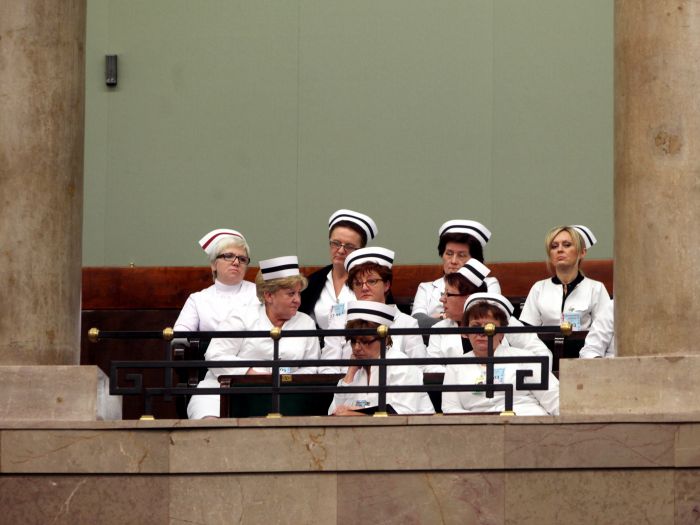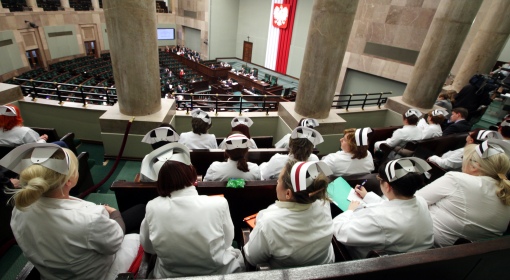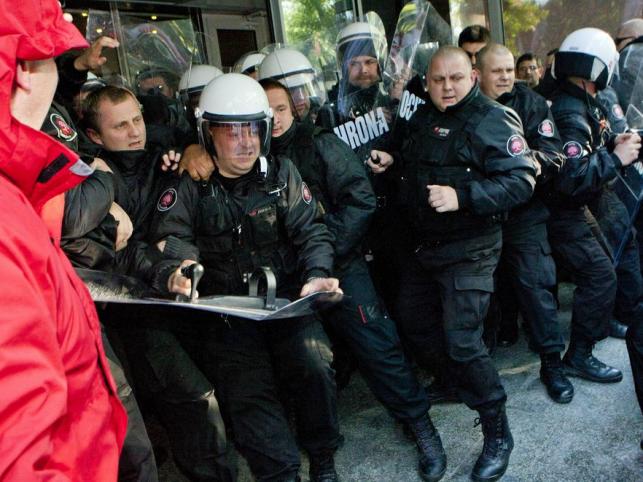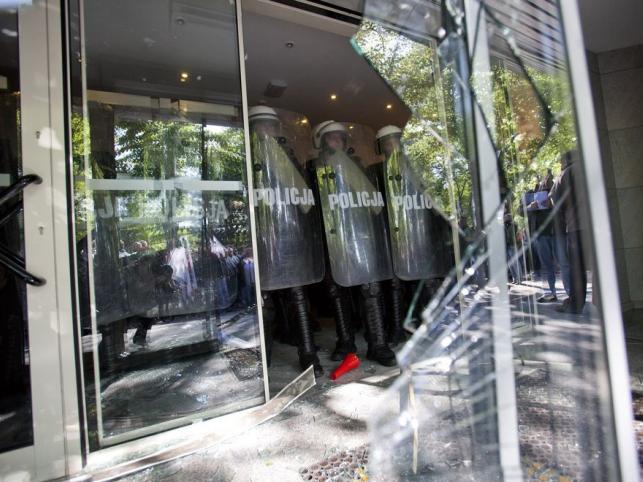Post by Bonobo on Nov 8, 2009 14:41:46 GMT 1
Trade union demonstration in Poznań












Workers who changed Poland now victims of their success
By Megan K. Stack
Los Angeles Times
November 1, 2009
GDYNIA, Poland - This shipyard is orphaned now, closed off from the world, cranes frozen over the Baltic Sea tides. It is for sale, but nobody offers to buy.
The shipyards linger at the base of the country's view of itself. The labor union of shipbuilders and technicians first cracked, then slowly eroded, communism's grip on Poland and, by extension, the rest of Eastern Europe. Workers struck, organized, and made demands; they stuck to their fight even in the face of bloody repression and martial law.
Through everything that came later - the rise from communism and reinvention through privatization, capitalism, and European Union membership - the shipyards remained a touchstone of Poland's national identity.
But sometimes the agents of change live long enough to become its victims. Today, the same shipyard workers who mounted the electrifying Solidarity labor union strikes find themselves unemployed. The fate of the yards themselves hangs like a politically laden albatross from the government's neck.
The shipyards have stayed vital for decades because of government subsidies; but the European Union is forcing Poland to privatize the yards - or sell the parts for scrap and close them.
It was here, in industrial cities strung along the Baltic coast, that Poland's battle against communism was waged and won. It was in Gdansk that an electrical technician named Lech Walesa hopped over a shipyard wall to take charge of a strike. Walesa would later win the Nobel Peace Prize and become Poland's first post-communist president.
Mindful of their history - not to mention the political weight of the workers and their union - the government has propped up the shipyards for years with billions of dollars in subsidies.
The European Union, however, concluded the subsidies had given the Polish shipbuilders an unfair edge over competition in the rest of Europe. The shipyard in Gdansk was sold in 2007. The other two were closed.
A frustrated Polish prime minister threatened to sack his treasury minister if the shipyards weren't sold off this summer. And for a flash, it looked as if a buyer had emerged. But the deadline to deposit the down payment rolled around in August, and the investor failed to deliver. The shipyards were thrown back into limbo.












Workers who changed Poland now victims of their success
By Megan K. Stack
Los Angeles Times
November 1, 2009
GDYNIA, Poland - This shipyard is orphaned now, closed off from the world, cranes frozen over the Baltic Sea tides. It is for sale, but nobody offers to buy.
The shipyards linger at the base of the country's view of itself. The labor union of shipbuilders and technicians first cracked, then slowly eroded, communism's grip on Poland and, by extension, the rest of Eastern Europe. Workers struck, organized, and made demands; they stuck to their fight even in the face of bloody repression and martial law.
Through everything that came later - the rise from communism and reinvention through privatization, capitalism, and European Union membership - the shipyards remained a touchstone of Poland's national identity.
But sometimes the agents of change live long enough to become its victims. Today, the same shipyard workers who mounted the electrifying Solidarity labor union strikes find themselves unemployed. The fate of the yards themselves hangs like a politically laden albatross from the government's neck.
The shipyards have stayed vital for decades because of government subsidies; but the European Union is forcing Poland to privatize the yards - or sell the parts for scrap and close them.
It was here, in industrial cities strung along the Baltic coast, that Poland's battle against communism was waged and won. It was in Gdansk that an electrical technician named Lech Walesa hopped over a shipyard wall to take charge of a strike. Walesa would later win the Nobel Peace Prize and become Poland's first post-communist president.
Mindful of their history - not to mention the political weight of the workers and their union - the government has propped up the shipyards for years with billions of dollars in subsidies.
The European Union, however, concluded the subsidies had given the Polish shipbuilders an unfair edge over competition in the rest of Europe. The shipyard in Gdansk was sold in 2007. The other two were closed.
A frustrated Polish prime minister threatened to sack his treasury minister if the shipyards weren't sold off this summer. And for a flash, it looked as if a buyer had emerged. But the deadline to deposit the down payment rolled around in August, and the investor failed to deliver. The shipyards were thrown back into limbo.













































